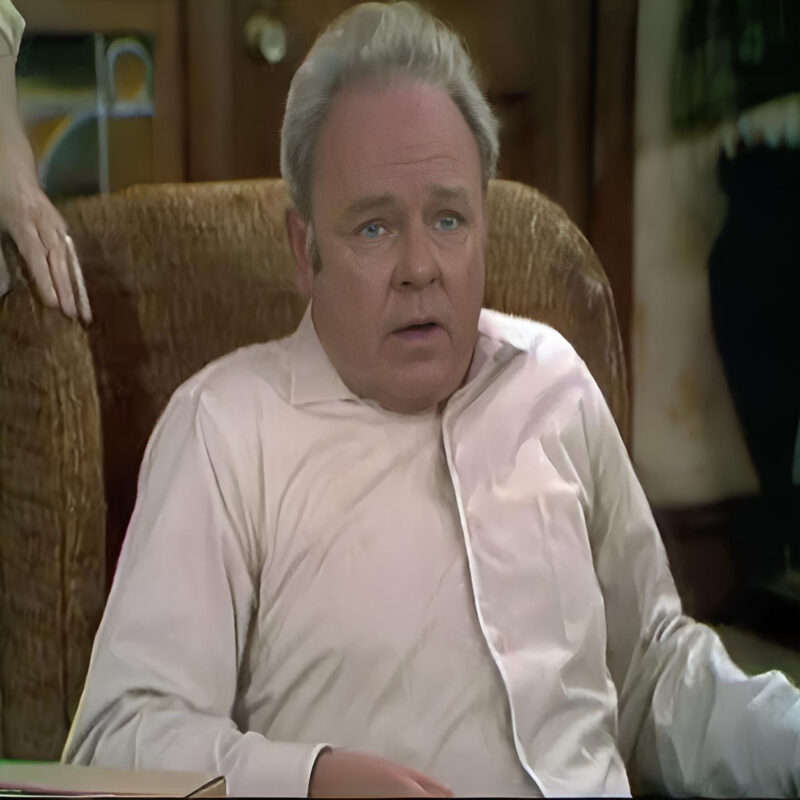
Norman Lear’s memoir, Even This I Get to Experience, is a testament to his belief that every moment, good or bad, is worthwhile because it adds to the richness of life. At 92 years old, Lear’s life story is as captivating as any Hollywood epic. Born in Connecticut in 1922, Lear’s childhood was marked by his father’s imprisonment for a dubious get-rich-quick scheme, leaving young Norman to live with relatives. After flying 52 combat missions in World War II and failing as a Broadway publicist, Lear moved to Los Angeles in 1950 and kickstarted his writing career with a $40 song parody.
In 1963, Lear teamed up with Bud Yorkin to produce variety shows and movies. The duo bought the rights to a British comedy that debuted on CBS in 1971 as All in the Family, igniting a legendary run for Lear as a sitcom producer. His creations, including Good Times, Sanford & Son, Maude, and The Jeffersons, revolutionized TV comedy with their biting social and political humor. At one point, Lear had nine different shows running simultaneously, each challenging the saccharine comedies of the ’60s and tackling taboo subjects like race, abortion, and menopause.
Lear’s pioneering work often brought conflict. He became a liberal darling and a feminist icon, while critics like Jerry Falwell accused him of introducing “filth and sexual perversion” to American TV. Behind the scenes, tensions ran high, as exemplified by Lear’s clashes with Carroll O’Connor on All in the Family and John Amos and Esther Rolle on Good Times.
The Struggles Behind All in the Family
Carroll O’Connor’s insecurities and fears nearly derailed All in the Family early in its run. Despite his brilliance as Archie Bunker, O’Connor frequently clashed with the creative team. One notable incident occurred during the production of “The Elevator Story,” where O’Connor vehemently opposed the script, claiming it was unplayable and predicting it would be a disaster.
Lear stood firm, convinced that the scene depicting a baby’s birth in an elevator, with the camera focused on Archie’s reactions, would be a powerful moment. The tension culminated in an emergency meeting at CBS, where O’Connor threatened to quit. However, he eventually returned to rehearsals, and the episode went on to win an Emmy, showcasing O’Connor’s stunning performance. This incident set the tone for their tumultuous working relationship, with O’Connor frequently battling his fears before delivering award-winning performances.
Good Times and the Battle for Authentic Representation
Lear’s Good Times made history as TV’s first show centered on a black family, but it also sparked intense debates about representation. Esther Rolle and John Amos, who played Florida and James Evans, felt a profound responsibility to depict their race authentically and positively. Their concerns often clashed with the writers’ vision, leading to conflicts over storylines and character portrayals.
One significant dispute arose over an episode involving teenage sex, which Rolle initially refused to consider. Lear insisted on the storyline, emphasizing the importance of addressing real-life issues. The episode aired to critical acclaim and opened up important discussions, but the tension remained.
The character of J.J., played by Jimmie Walker, also became a point of contention. Walker’s catchphrase “Dy-no-mite!” became a fan favorite, but Rolle and Amos felt it overshadowed the show’s more serious themes. Their resistance to Walker’s comedic style created further friction on set.
By the end of the third season, the tension reached a breaking point, and Amos was written out of the show. The fourth season opened with the Evans family coping with James’ sudden death, marking a dramatic shift in the series.
Lear’s Legacy
Despite the backstage drama, Norman Lear’s contributions to television are undeniable. His shows not only entertained millions but also broke new ground in addressing social issues. Lear’s ability to blend humor with hard-hitting topics created a lasting impact on the medium and paved the way for future generations of writers and producers.
In Even This I Get to Experience, Lear reflects on these challenges and triumphs, offering a candid look at his extraordinary career. His story is a reminder that creativity often comes with conflict, but the results can be nothing short of revolutionary.
